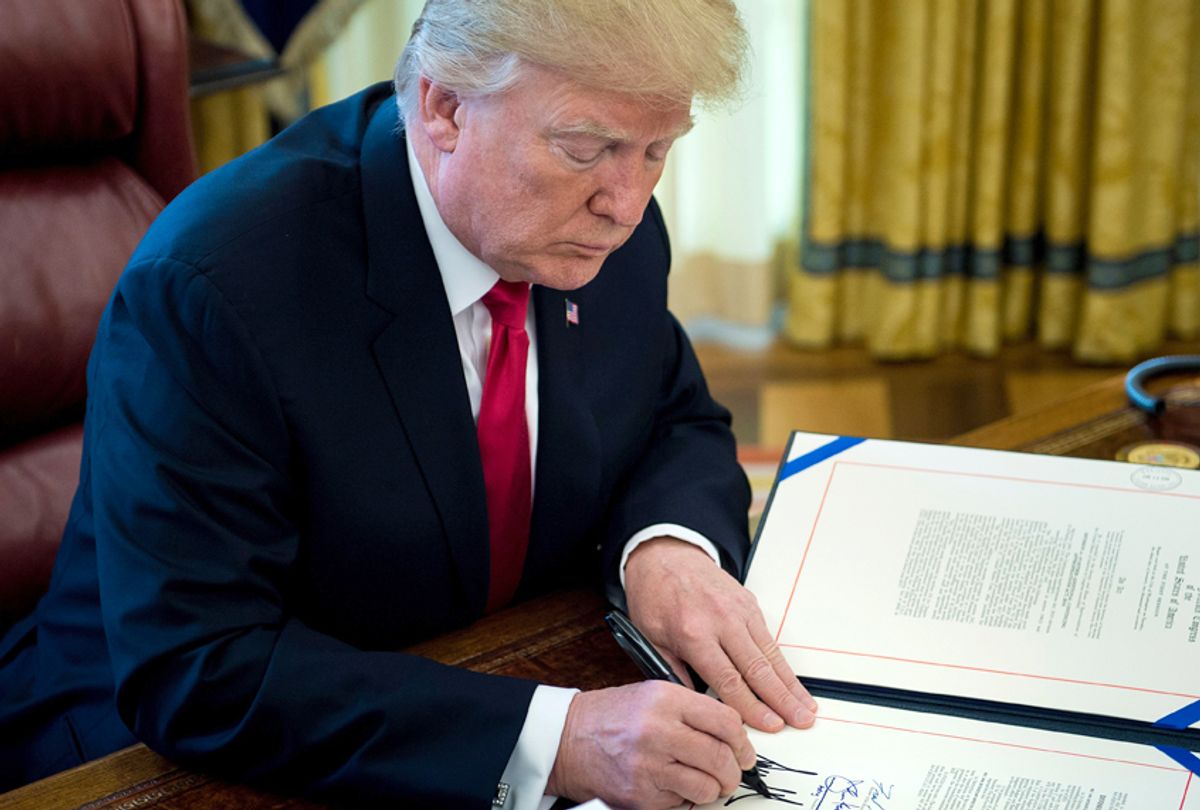President Donald Trump is making it possible for conservative states to apply work requirements to Medicaid recipients.
As detailed in the new guidelines, individual states will be allowed to force individuals covered by Medicaid to either work, volunteer or participate in job training as a prerequisite to receiving their benefits. Centers for Medicare and Medicaid Services Administrator Seema Verma took to Twitter to defend the policy change, as well as telling reporters during a Thursday conference call, "This is about helping people rise out of poverty."
The Trump administration claims that 10 states have applied for waivers to include work or community involvement requirements as prerequisites to receive Medicaid, according to NBC News. Those ten states, Arizona, Arkansas, Indiana, Kansas, Kentucky, Maine, New Hampshire, North Carolina, Utah and Wisconsin, all have Republican executives.
More than 70 million Americans currently receive Medicaid benefits, equaling roughly 1 out of 5 people in the country — a number that was considerably increased due to President Barack Obama's health care reform policies. Many of these recipients are individuals who are employed but whose jobs do not provide health insurance. According to the Kaiser Family Foundation, which is a nonpartisan research organization that focuses on health care, nearly 60 percent of Medicaid recipients work either full-time or part-time, with the majority of the unemployed recipients citing reasons such as illness, attending school or caring for family members.
It is entirely possible that the Trump administration's back-door efforts to allow states to kick segments of the unemployed off of Medicaid won't work. By law, states must use a process known as "1115 waivers" in order to avoid following Medicaid's usual rules, according to The Washington Post. To receive the waiver, the states must demonstrate that their actions would "further the objectives" of the Medicaid program. Because Medicaid never states that putting people back to work is a goal of the program, the Trump administration's letter is instead arguing that being employed helps individuals improve their health.
Despite failing to repeal the Affordable Care Act through most of 2017, the Trump administration has continued to engage in various attacks against progressive health care policies over the past few months. Its tax reform bill, for example, managed to effectively gut a key provision of the Affordable Care Act.
"This is a quiet, but substantial attack on the cornerstone of the Affordable Care Act and is repeal by another name," Jeremy Slevin, associate director of advocacy, Poverty to Prosperity Program at the Center for American Progress, told Salon in December. "So the biggest way the Senate bill affects the health care system is through the repeal of the individual mandate. Just repealing that provision alone will cause 13 million more people being uninsured."



Shares